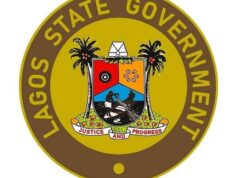Public schools especially primary and secondary schools in Abuja metropolis do not have sufficient water system and supply for users’ convenience. Viewpoint Housing News checks showed that many public schools are in dire need of water supply especially for conveniences.
Our reporter who visited Government Secondary School (GSS) Garki reported that there is no adequate water for conveniences. Students and teachers go looking for water when they want to ease themselves during school hours.
A teacher who said that he had been in the profession of teaching for the past 20 years yelled: “Inadequate water supply has become part of the public school system in this part of the country. It is not even regarded as a priority at all. So, over the years, students have become accustomed to sourcing for water wherever it is available.”
Teachers and students do not know when this will end. According to professionals, it is very dangerous. Investigations revealed that authorities hardly make provision for alternative water supply knowing that public water supply is not constant.
A JSS III student at Government Secondary School Wuse Zone 3 said that the toilets in her school are appalling. This compels them to shut the windows of their class to evade the offensive smell that oozed out from the toilet due to lack of water.
Another student said that he contracted diarrhea from their school toilet but could not stay at home, he had to come to school because he had to sit for an examination. He messed his trousers up. His mates had to get him another pair of trousers to for a change.
Some of the students said the toilet had unpleasant odour that could be perceived from the walkway leading to their hostel, which was worsened by the smell of urine and garbage by a corner of the toilet.
One of the students who gave his name as Wale Adeleke said, “Promises are made by management at the beginning of the year to improve on the facilities, but that are yet to be fulfilled.” Senior students most times send the junior ones to go look for water for them (seniors).
Another student, Mary said that the toilets were in a terrible state. And that she usually had to constrain herself from using the school toilets, stressing that even though she knew it was not good for her system, she had no choice.
Another student told Viewpoint Housing News: “The toilets are nothing to write home about and many girls prefer to defecate in nylon bags and fling them across the walls. That is the in-thing and the best way to keep away from getting infected. Sanitary facilities here are simply inadequate.”
A principal of one of the schools who pleaded anonymity lamented poor water supply in her school. The principal noted that the school’s sanitary conditions were in an appalling state. She said although there are imposing edifices and attention-catching frontage which usually welcome visitors into the school, “The toilets are in unpleasant state”.
The United Nations Children’s Fund (UNICEF) frowned that the country is far from having child friendly school concept. It said that this is widespread in various states in the country.
A majority of primary schools, especially in rural areas, lack water, electricity and toilet facilities. For example, on average, there is only one tap for 600 pupils in the primary school system.
Despite political commitment to reverse years of neglect in providing basic social amenities and a significant increase in the federal funding, investment in water is still low compared to other Sub-Saharan countries.



